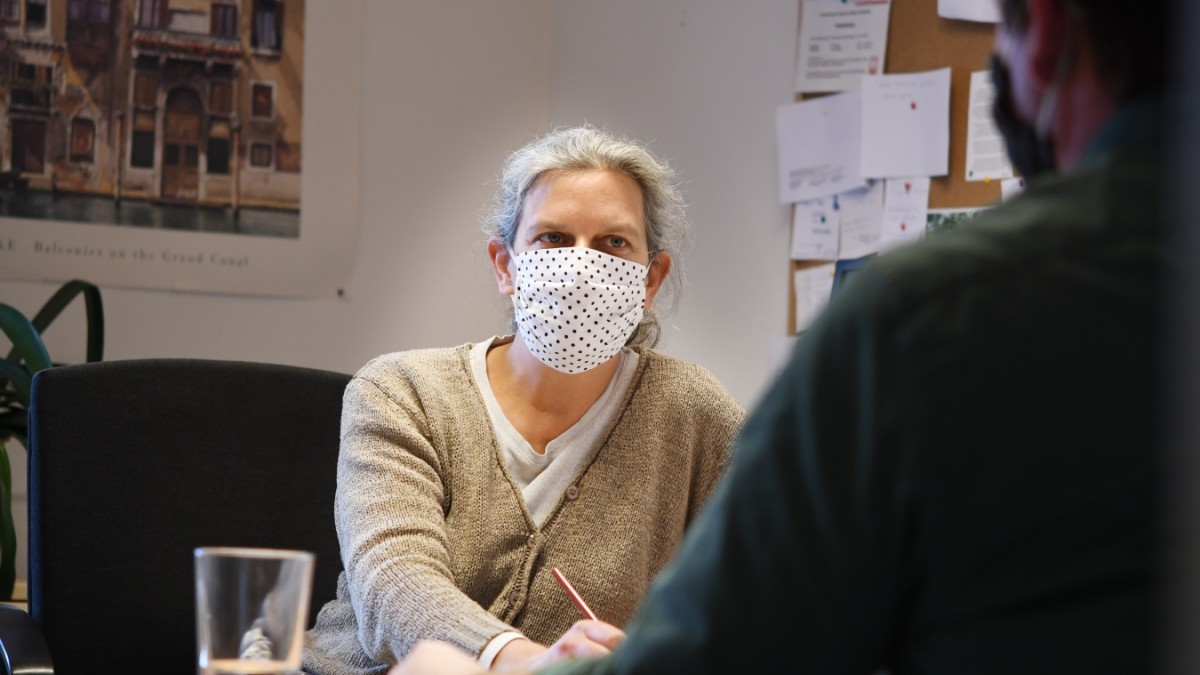In the corona pandemic, it’s not just the number of infections that are creating waves. The economic consequences for private households are also rushing in in waves. The first wave is already here, many private households have to cope with significantly less money because of short-time working, unemployment or not being able to work independently.
And the second wave of financial consequences hasn’t even arrived. In October 2020, almost 70,000 private individuals in Germany are no longer over-indebted than in autumn 2019. This is shown by the 2020 debtors atlas from Creditreform. Accordingly, less than every tenth German citizen is over-indebted. Over-indebted is anyone who does not pay bills over a longer period of time, is unable to service loans several times or has to file for personal bankruptcy.
There were two main reasons that saved the Germans from drifting into debt: the state pays out aid – and people save a lot more. But the prognosis for the year 2021 looks bad, if it goes up to the experts from Creditreform, who compile the so-called debt atlas every year. They suspect that the current phase is tantamount to a “calm before the storm”. The consequences of the pandemic will be “more serious for the economy, society and consumers than those of the global economic crisis in 2008 and 2009”, says Patrik-Ludwig Hantzsch, head of economic research at Creditreform.
The main concern is for those people who are currently fighting for their jobs. According to Creditreform, around 700,000 people have lost their jobs since the outbreak of the pandemic, and more than seven million people have been or are on short-time work. According to estimates by economic researchers, two million freelancers and self-employed people are currently fighting for their existence. This means that almost 15 million German households have to cope with lower incomes and still have to pay rent, transfer daycare fees and buy groceries.
Above all, jobs in the low-wage sector were lost
Low-wage earners who were unable to save anything or only a little before the crisis hit the lower incomes much harder. The experts at Creditreform expect that the gap between rich and poor will widen further as a result of the pandemic – also with regard to the distribution of debts and assets. In the spring, jobs in the low-wage sector in particular were lost – with taxi companies or in the catering trade. However, it also affected temporary positions for young professionals and mini-jobbers.
High earners, on the other hand, were more likely to be absorbed by short-time work or kept their full earnings. Instead of going into debt, they saved. Why? They went shopping less, went to fewer cinemas, restaurants or concerts, maybe also suspended fees for gyms and had to cancel trips. The result: the savings rate almost doubled in the second quarter of 2020 compared to the year before the crisis. Many low-income households, on the other hand, lost a considerable part of their disposable income – without the cushion of a well-filled savings account or securities account behind them. Those who struggled to keep their account balance in positive territory before the crisis are now in danger of slipping into negative territory in the long term.
More people overestimate their earnings
If you not only look at the acute changes caused by the Corona crisis, it becomes clear that the reasons why people become insolvent have shifted over the past twelve years. Due to the good situation on the labor market up to spring 2020, far fewer people went into debt through unemployment (decrease of 30 percent compared to 2008). Instead, “inefficient housekeeping”, i.e. an overestimation of one’s own budget, has been a much more frequent reason for debt in recent years than it was in 2008 – amid the financial crisis, in which many were also affected by short-time work and unemployment.
A relatively recent phenomenon observed by Creditreform’s economic researchers is the steadily growing number of long-term low-income earners. Since 2015, permanently low earnings have been one of the six main reasons why people cannot make a living without getting into debt. The expansion of precarious employment relationships in recent years is now one of the reasons why many people no longer have any reserves during the crisis.
Old-age poverty puts more pensioners into financial difficulties
The biggest debt-makers in Germany are still people between the ages of 30 and 40. Almost one in six of them is in debt. In this phase of life, many still have to grapple with starting salaries and fixed-term contracts, while at the same time spending shoots up due to building a house or starting a family. The higher the age group, the lower the proportion of indebted people.
However, the debtors’ atlas 2020 also documents increasing poverty in old age: While over-indebtedness in the younger age groups has steadily decreased slightly in recent years, it has increased again in the age group 70-plus by 23 percent compared to the previous year. Since 2013, the total number of over-indebted people over the age of 70 has more than tripled.
Behind this are people who, after leaving work and after years of childcare, receive pensions of less than 1000 euros and at the end of the month no longer have enough money to buy basic food. Compared to young people who can get their finances under control again with a new permanent job, old people often remain stuck in the “over-indebted carousel”, according to Creditreform. They therefore advocate that the federal, state and local governments invest more in affordable housing and offers for financial advice for low-income families, for example.
– .


